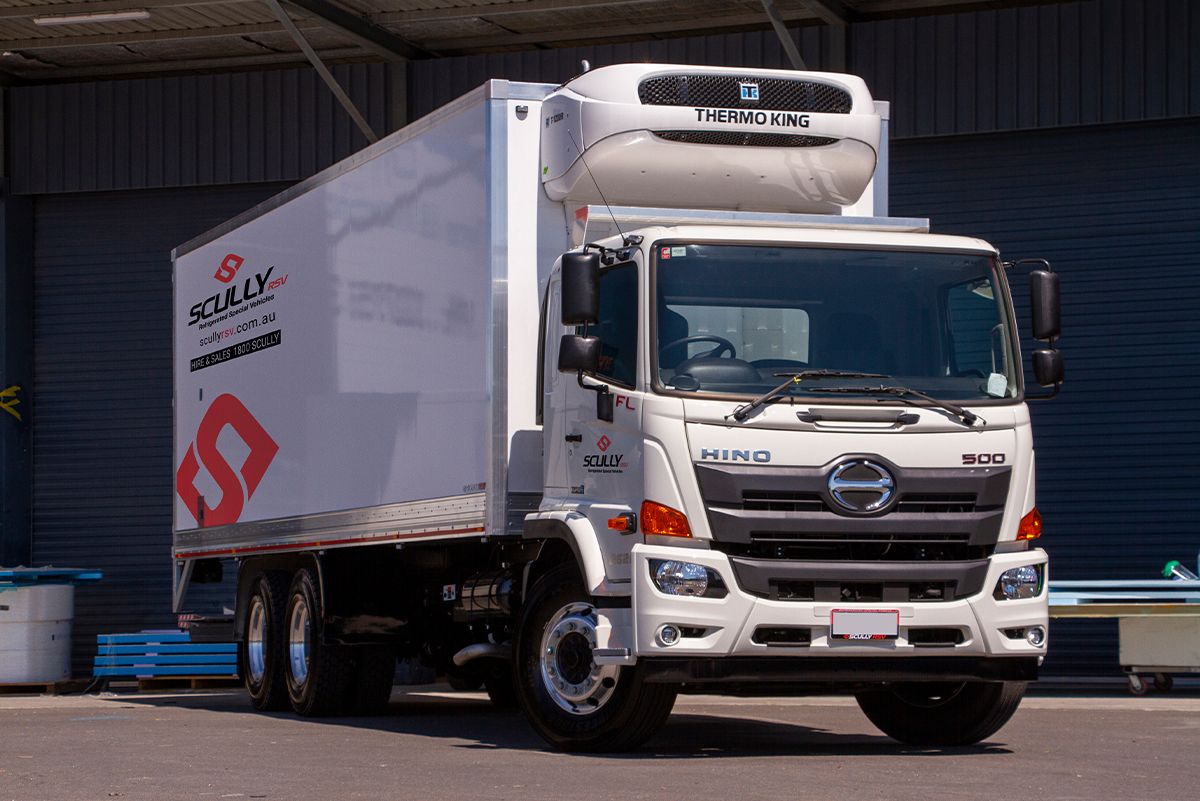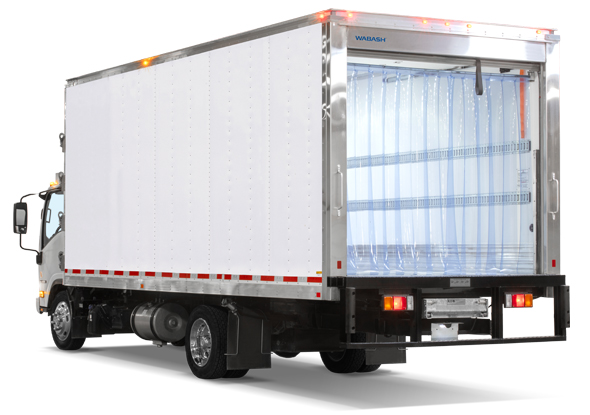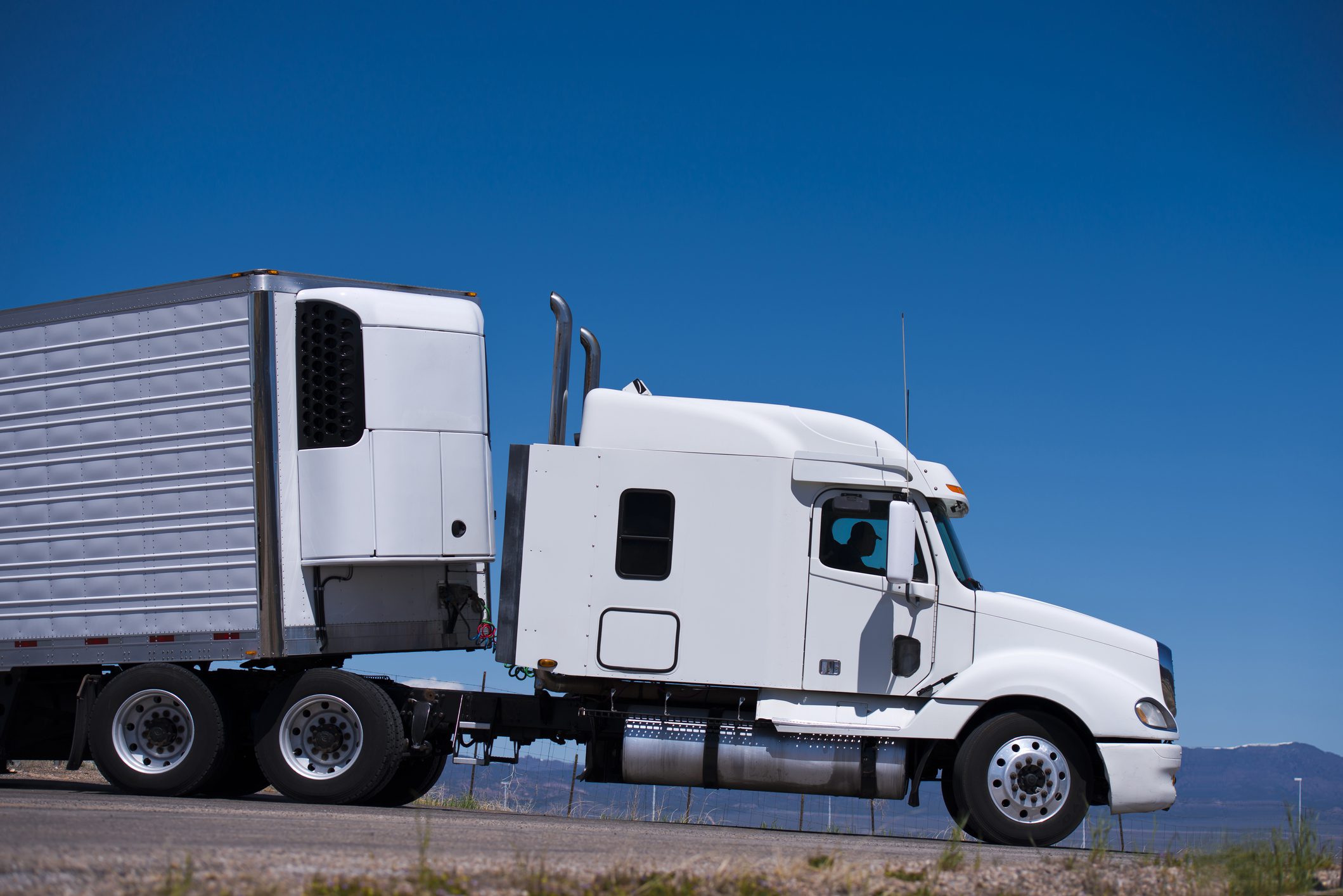Reefer Trucks Thermo King: Blazing A Trail in Cold Chain Modern Technology
Wiki Article
Picking the Right Transportation Refrigeration System for Your Fleet
Selecting a suitable transport refrigeration system for your fleet is an important choice that can dramatically influence functional effectiveness and item stability. It requires an extensive understanding of your particular refrigeration needs, including temperature needs and distribution routines.Comprehending Your Refrigeration Demands
When selecting a transport refrigeration system, recognizing your specific refrigeration requirements is extremely important to guaranteeing product high quality and conformity with sector standards. Different aspects have to be considered to identify one of the most ideal system for your operation. These include the kind of items being transferred, their temperature level needs, and the duration of transit.For disposable goods, such as fresh produce or drugs, specific temperature control is crucial. Comprehending the temperature variety needed for each product allows for the selection of a system that can preserve those conditions constantly. Additionally, think about the frequency of shipments and the range took a trip; longer trips might demand systems with enhanced insulation or backup power choices to stop temperature level changes.

Furthermore, the ability of the refrigeration system ought to straighten with your tons size. Straining a system can bring about inadequate air conditioning, while an extra-large system might be expensive and ineffective. Last but not least, governing conformity is essential; acquaint yourself with local and international standards governing the transport of temperature-sensitive products. By extensively analyzing these factors, you can guarantee that your selected transportation refrigeration system efficiently satisfies your functional requirements and keeps product stability.
Sorts Of Transportation Refrigeration Solution
Picking the appropriate sort of transport refrigeration system is important for ensuring the safe transportation of temperature-sensitive goods. There are several systems readily available, each made to meet particular needs and applications.One of the most common types include direct development (DX) systems, which utilize refrigerant to soak up heat and cool the cargo area effectively. These systems are frequently favored for their effectiveness and reduced preliminary costs. An additional choice is the main refrigeration system, which serves numerous compartments or cars from a single compressor device. This is especially valuable for larger fleets needing regular temperature level control across different transport units.
Additionally, there are self-supporting refrigeration units that integrate the compressor and evaporator in one plan. These devices are suitable for smaller sized cars or when space is limited. For specialized applications, such as delivering perishables or pharmaceuticals, cryogenic refrigeration systems might be utilized, employing liquid nitrogen or co2 to maintain ultra-low temperatures.
Last but not least, crossbreed refrigeration systems that combine electrical and diesel power are becoming increasingly preferred, offering flexibility in power usage and lowering ecological effect. Understanding these different types enables fleet drivers to make informed decisions customized to their certain operational demands.
Key Features to Think About
Exactly how can one make certain that a transport refrigeration system meets all operational demands? To achieve this, several essential features must be meticulously assessed. First of all, temperature level control is vital; systems need to provide exact temperature setups to fit numerous products, ranging from frozen items to perishable items.Energy performance is an additional essential consideration, as it impacts operational prices. Seek systems that utilize sophisticated modern technology, such as variable speed compressors, to optimize energy usage without endangering efficiency.
One more feature to analyze is the integrity and longevity of the devices. Solutions constructed from high-grade materials and designed for durability versus extreme conditions will certainly minimize maintenance costs and downtime.
In addition, the simplicity of upkeep and availability of components can considerably influence operational effectiveness (reefer trucks thermo king). Attributes like modular layouts or remote surveillance capacities can enhance solution procedures
Last but not least, compatibility with existing fleet management software program can enhance monitoring and reporting procedures. By focusing on these essential features, fleet drivers can make certain that their transport refrigeration systems not only meet present needs however also adjust to future needs.

Budgeting for Refrigeration Solutions
Evaluating vital functions of transport refrigeration systems is just one part of making certain operational performance; budgeting for refrigeration solutions is equally vital. A well-structured budget plan not only encompasses the first acquisition price yet also takes into consideration long-lasting operational expenses, consisting of energy consumption, maintenance, and potential repair work needs.When developing a budget plan, fleet managers ought to initially analyze the overall cost of ownership (TCO) This consists of not only the purchase expenses but also ongoing expenditures connected to fuel effectiveness and the longevity of the refrigeration Full Report systems. Selecting systems with higher power effectiveness scores may generate significant cost savings in time, reducing ahead of time prices.
Additionally, fleet drivers should represent potential scalability. As services expand, the refrigeration requires may transform, requiring upgrades or extra systems. Planning for these future expenditures can stop financial stress.
Financing alternatives can additionally play an essential duty in budgeting. Leasing, finances, or outright purchases each have distinct financial implications, and understanding these can assist in making an informed choice. Ultimately, an extensive budget plan that considers both future and prompt requirements makes certain that transportation refrigeration systems add positively to the overall operational efficiency of the fleet.
Upkeep and Assistance Alternatives
In the world of transport refrigeration systems, effective upkeep and support choices are vital for guaranteeing optimal performance and durability. Regular upkeep is other necessary to stop breakdowns and maintain the integrity of temperature-sensitive cargo. It is suggested to develop a regular assessment routine with qualified specialists that can execute necessary checks and repair services on refrigeration units.Assistance alternatives need to consist of a durable service arrangement, covering both routine maintenance and emergency fixings. This makes sure that your fleet has accessibility to motivate aid, decreasing downtime and preserving functional effectiveness. Several manufacturers provide thorough assistance packages that include training for your personnel, allowing them to do basic troubleshooting and upkeep tasks.
Additionally, utilizing remote tracking technology can boost your maintenance technique - thermo king transport refrigeration. These systems provide real-time data on temperature and performance, enabling aggressive procedures before problems rise. Buying training and technology not just increases your fleet's reliability yet likewise expands the life expectancy of your refrigeration systems
Ultimately, a strategic technique to maintenance and assistance will guard your investment and make certain that your transport refrigeration systems run at peak effectiveness, supplying constant outcomes you could check here for your company.

Verdict
In verdict, selecting the appropriate transport refrigeration system for a fleet necessitates a thorough assessment of particular refrigeration requirements, system types, and vital functions. Prioritizing operational effectiveness, energy consumption, and maintenance factors to consider is critical for guaranteeing reliability. Additionally, mindful budgeting and preparation for future scalability will certainly contribute to the long-term success of the refrigeration strategy. Inevitably, an educated decision will boost item stability and optimize overall logistics procedures within the fleet.Selecting an ideal transport refrigeration system for your fleet is a crucial choice that can substantially impact functional efficiency and item stability.When picking a transport refrigeration system, recognizing your particular refrigeration demands is vital to ensuring item quality and compliance with sector requirements. By extensively evaluating these variables, you can guarantee that your picked transport refrigeration system successfully meets your operational demands and maintains item honesty.
Ultimately, a detailed budget that thinks about both future and immediate requirements ensures that transport refrigeration systems add positively to the general functional efficiency of the fleet.
In final thought, picking the suitable transportation refrigeration system for a fleet requires a detailed evaluation of certain refrigeration needs, system types, and necessary features.
Report this wiki page